29th May, 2008
KUALA LUMPUR: Of late there has been much talk about Barisan Nasional (BN) MPs in Sabah and even Sarawak being enticed to defect to the Opposition because they as well as their constituencies have been perceived as having got a raw deal from the federal government as far as Cabinet posts and development are concerned.
Their perceived disgruntlement ranged from the relative lack of ministerial posts, inadequate infrastructure facilities and social issues like the influx of illegal immigrants.
Sabah politicians have highlighted the fact that the state had provided BN with 24 out of the 140 BN seats in Parliament or about 17 per cent of the total.
Add in the 30 seats from Sarawak MPs, the two states account for 54 seats or nearly 40 per cent of the BN seats in Parliament.
With the Opposition, now with 82 seats in Parliament, claiming that they could get another 30 seats or so to form the next government by a simple majority of 112 seats, political observers are watching closely whether politicians from East Malaysia are being targeted to desert BN.
Some MPs strongly dismiss the notion that those from Sabah could jump ship and take offence at such insinuations.
“Don’t accuse us of defecting. But study what we have said,” said Kimanis MP Datuk Anifah Aman when asked whether he has been contemplating defecting since he has been rather vocal in highlighting several issues affecting his home state.
“It has reached a boiling point. Not just for MPs (in Sabah) but also the ordinary people. Please don’t sidetrack the issue by accusing us of (being keen on) defecting. If you fail to look at the issues we raised, then the issue of “lompat” (jumping across to the Opposition) could become real,” he told Bernama.
With the surprising inroads made by the Opposition during the recent general election, the BN leadership has taken quite a while to take stock and make the necessary adjustments.
But adjustments and accommodation it would have to make, given the precarious position of BN should the Opposition go all out to woo disgruntled BN MPs.
And for this, Prime Minister Datuk Seri Abdullah Ahmad Badawi will be taking the bull by the horns as he will be in Sabah over the next few days to thrash things out for the betterment of the people and ruling coalition.
Anifah, who even turned down his appointment as deputy transport minister after the March 8 general election, said the grievances raised by MPs from the Sabah and Sarawak of late had been more vocal because they felt that “nothing has been done all this while”.
His view is shared by Kinabatangan MP Datuk Bung Mokhtar Radin, who said: “It has been going on for very long time. We are supposed to talk about improvements in the standard of living but (in Sabah) we still talk about the lack of basic infrastructure.”
“How can we discuss ICT (information and communications technology when even the basic infrastructure doesn’t exist?” he asked. Both the MPs said the pleas from them as well as the people they represent come from the bottom of their hearts, nothing more.
Anifah also draws an analogy on the disparity of development between Sabah and other states in Peninsular Malaysia: “I would like to put it in this way – we all stay in one nice and big bungalow, but only some occupants are enjoying the facilities. Only a few enjoy piped water supply but others have to go to the well. Some are using air-con but others dont even have fans.”
Anifah, who is also the younger brother of Sabah Chief Minister Datuk Seri Musa Aman, vehemently denies that the question of Sabah and Sarawak MPs defecting does not arise at all.
He said what they had been articulating was merely to highlight what was due to the people in Sabah and Sarawak.
“Improving the infrastructure, I mean just the basic infrastrucuture, not fancy things. I have been an MP since 1990 and each time we go back to our electorate, the people hold on to our promises. They ask when piped water, electricity and roads will come to their areas. When we say that the government is working on the matter, they feel as if we are telling lies,” he said.
“We have been part of Malaysia for the past 40 years. Until now, we still have many areas that are not connected by road, electricity and clean water supply. We can’t just afford to talk too much, even the past promises had not been met,” he said.
Anifah felt that federal leaders needed to traverse the rural backwaters of Sabah and Sarawak “to see for themselves” the dire situation in the interior areas which needed improvements in basic infrastructure badly. “Sabah is the second poorest state in Malaysia. If I am not wrong, the poverty level is at 23 per cent, higher than the national average,” he said.
Anifah is rather incensed by comparisons that the allocation of RM3.5 billion for educational facilities in Sabah is more than the funds provided for the whole of Penang.
“How you compare Sabah and Penang when a parliamentary seat in Sabah such as Papar itself already is as large as Penang?” Anifah said such unfavourable views tend to make MPs from Sabah feel neglected or ignored.
He hoped Sabah MPs would be given more prominent roles in the Cabinet so that they could better help develop the state.
Bung Mokhtar felt that the deficiency for Sabah in the Cabinet line-up could be addressed via a reshuffle. Here, it is the domain and prerogative of the prime minister to decide.
“Why don’t we have another ministry for Sabah and Sarawak?” he asked, adding that there was already a ministry for the Federal Territories.
“The problems need to be solved now. Otherwise, in the next election, this state could fall to the Opposition if we don’t do anything from now for the people.”
Bung Mokhtar cites the case of a dilapidated rural government clinic in Pinangeh when only about RM800,000 is needed to build a new clinic. “But until now, the allocation is not there yet despite the matter having been raised 15 years ago. Consideration – that is what we want. Give us fair development that is just the basic wants. How are we going to talk about ICT when the infrastructure is still like 50 years ago?” he asked.
Tenom MP Raime Unggi, when asked about possible defections, holds steadfastly to the view that the people in Sabah and Sarawak would still support BN as they are convinced that only BN can deliver development.
However, he said, federal leaders cannot take things for granted anymore for it could reach a point of no return one day if nothing was done to improve the situation.
“For example, in my constituency, which is an interior constituency, the people need proper roads to send their agriculture produce to the market. At first, they can say that “we can endure this for a while as it would take time to have a proper road to be built”. But after nearly 40 years and there is still no road, they might wonder whether BN can still deliver.”
Serian MP Datuk Richard Riot, once rumoured to cross over to the Opposition after March 8, said the fact that politicians had been echoing the frustrations of the people in their constituencies did not mean that they were going to leave BN.
Stressing another point which he felt that his people had not been given due recognition was the fact that although his constituency was just half an hour from Kuching, only 70 per cent of the population get electricity and only 40 per cent get treated water.
And at the rate the pace of development is taking place, he reckons that it will take another 20 years for these people to enjoy such basic necessities.
“Voicing out doesn’t mean that we are pulling out from BN. Basically, we just want more attention,” said Riot.
“We appeal to be given allocation based on the size of the constituency, not just the standard RM1.5 million for every constituency. For my constituency which is as big as Melaka state, RM1.5 million can’t do much for rural roads. You don’t need to have RM1.5 million channelled to urban constituencies as most of their roads are already constructed by the local authorities.”
Kapit MP Alexander Nanta Linggi said taking a vociferous approach was not tantamount to holding the government to ransom as MPs from Sabah and Sarawak were only highlighting basic issues and unfulfilled needs which needed to be addressed seriously.
“For example, we have been asking for a road to be built from Sibu all the way to Song and Kapit since the day we joined Malaysia (on Sept 16, 1963).
“However, until now it still remains a proposal,” he said. Kapit is the innermost interior town in Sarawak and only accessible through a two-hour journey along the river by speedboat from Sibu. “In my own area, the people need plenty of roads. More so now when the fuel price is higher and riverine transportation is becoming very expensive and not so reliable.
“We have to have the road to cut down travelling costs. (Just imagine) Song and Kapit are just about 145 kilometres apart but they are not even connected by road. This is something we have been asking for since we joined Malaysia. Even my late grandfather had been asking for this,” said Alex, who is also the grandson of the late Tun Temenggong Jugah, one of the signatories for Sarawak in joining the Federation of Malaysia.
Thursday, May 29, 2008
Voicing out frustrations doesn’t mean wanting to jump ship: BN MPs
Subscribe to:
Post Comments (Atom)















.jpg)



.jpg)


a.jpg)











.jpg)

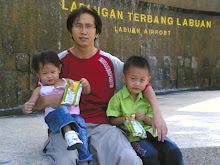.jpg)
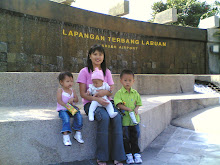.jpg)



















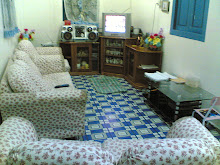.jpg)
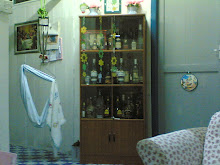.jpg)






















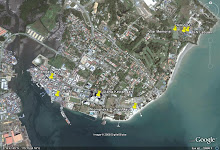
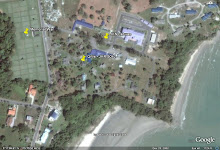

No comments:
Post a Comment